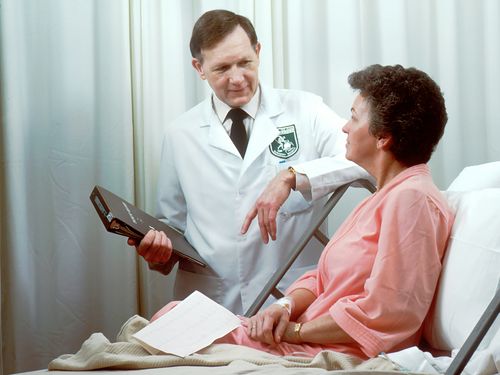With the increasing cases of stomach cancer around the world, and more than 10,000 deaths relating to it recorded every year in the US, medical researchers are tirelessly working on informing the public about the major causative factors that increase the risk of stomach cancer, including; food, medicine, and feeding habits.
The American Cancer Society has predicted that in 2024 there will be about 26,890 new cases of stomach cancer in America and an estimated 10,880 cases of death. This has heightened more interest in the disease.
A recently released analysis on gastric cancer shows that people who frequently add salt to their cooked food are about 40% more likely to develop stomach cancer. This has added a new twist to the risk factor of the disease. But, what else should people know?
What is Stomach Cancer?
The unusual cell growth in the body causes cancer. These cells are almost in all body parts and become cancerous, then spread.
Stomach cancer occurs when these cancerous cells grow within the stomach lining (out of control). This type of cancer is also known as gastric cancer. Stomach cancer is difficult to diagnose in its early stage and is mostly detected when it has spread to other parts of the body.
According to the National Cancer Institute (NCI), stomach cancer makes up 1.4 percent of new cancer cases in the United States.
Warning Signs Of Stomach Cancer
The early stage of stomach cancer (gastric cancer) shows insignificant or no symptoms, making it difficult to detect until it has spread beyond the stomach lining. Here are some warning signs of stomach cancer to look out for.
- Loss of appetite
- Unusual weight loss
- Abdominal pain
- Feeling satisfied after eating a little portion of a meal
- Indigestion or heartburn
- Vomiting/nausea
- Swelling abdomen
- Blood in the stool (dark brown or black stool)
- Anemia
- Jaundice (yellowing of the eyes)
These symptoms can also be caused by other stomach infections like ulcers and other types of cancer. But if these symptoms persist, see a doctor.
Risk Factors Of Stomach Cancer
Different types of cancers have different risk factors that increase the chances of contracting them. Individuals can work on changing risk factors, like salted foods, smoking, and drinking alcohol. However, other risk factors such as age or family history can’t be changed.
Having a risk factor, or several risk factors, does not mean that you have or are likely to have stomach cancer. Risk factors to look out for include the following:
Sex and Age
Most people are diagnosed with stomach cancer in their 60s or above. While it is more feasible to get this disease in old age. stomach cancer can also occur in younger people with men more likely to have the disease than women.
Diet
The risk of stomach cancer increases in people whose diets include large amounts of salt, such as salted fish and meat, and pickled vegetables. The risk of non-cardia stomach cancer increases when you eat processed foods, grilled, or charcoaled meats regularly.
Eating lots of fresh citrus fruits and vegetables appears to lower the risk of stomach cancer while eating little or no fruits increases the risk.
Drinking Alcohol
Drinking alcohol 3 or more times per day increases the risk of stomach cancer. It contributes significantly to the risk of developing stomach cancer, according to the American Cancer Society.
Smoking
The rate of smoking increases the risk of stomach cancer, especially cancers that occur near the esophagus in the upper part of the stomach.
Other risk factors include;
- Being overweight or obese
- Helicobacter pylori bacteria infection
- Family history
- Previous stomach surgery
- Stomach polyps
The Bottom Line
With stomach cancer being a global health concern due to the difficulty of early detection and its subtle symptoms, understanding the risk factors such as diet, smoking, drinking alcohol, and family history (hereditary) is essential for easy prevention. While research is still ongoing to determine the exact cause of stomach cancer, one needs to look out for warning signs and put in preventive measures while seeking immediate medical attention to avoid complications.




